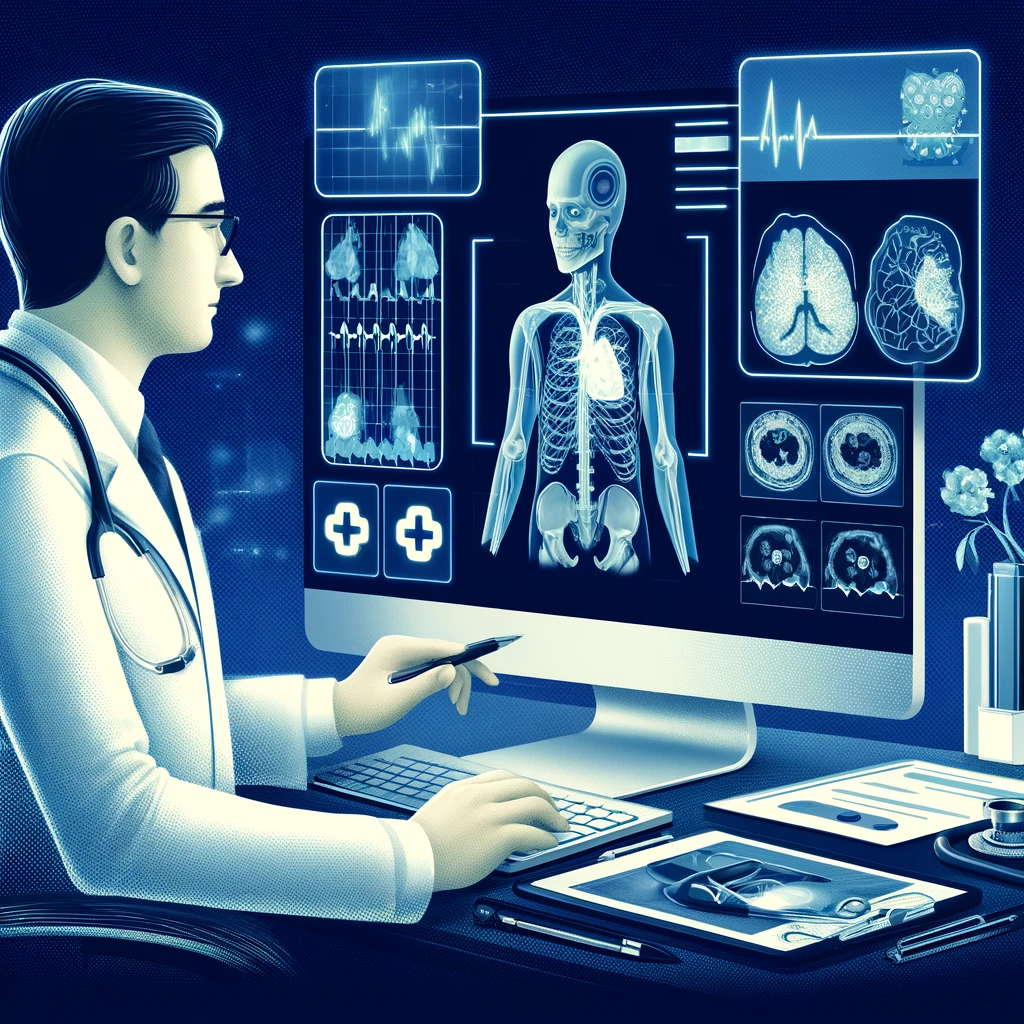Artificial Intelligence (AI) is revolutionizing the healthcare industry, offering unprecedented opportunities to enhance patient care, streamline operations, and facilitate medical research. However, alongside these benefits come significant ethical concerns that must be addressed to ensure that AI is implemented responsibly.
Opportunities in AI-Driven Healthcare
Improved Diagnostics and Treatment
AI algorithms can analyze vast amounts of medical data to identify patterns that may be missed by human clinicians. This capability can lead to earlier and more accurate diagnoses. For example, AI-powered imaging tools can detect anomalies in radiographs, MRIs, and CT scans with high precision, aiding in the early detection of diseases like cancer.
AI can also personalize treatment plans based on a patient’s genetic makeup, lifestyle, and other factors. By analyzing data from various sources, AI can recommend the most effective treatments and predict patient responses, leading to improved outcomes and reduced side effects.
Enhanced Patient Monitoring and Care
Wearable devices and remote monitoring tools powered by AI can continuously track patients’ vital signs and health metrics. This real-time data allows for proactive management of chronic conditions, early intervention during health crises, and a reduction in hospital readmissions. AI can also alert healthcare providers to potential issues before they become critical, enabling timely and efficient care.
Drug Discovery and Development
The drug discovery process is traditionally time-consuming and expensive. AI accelerates this process by analyzing biological data to identify potential drug candidates more quickly. Machine learning models can predict how different compounds will interact with targets in the body, significantly shortening the time required to bring new drugs to market.
Operational Efficiency
AI can optimize administrative tasks, such as scheduling, billing, and resource allocation, freeing up healthcare professionals to focus more on patient care. Natural language processing (NLP) tools can assist in documentation, reducing the burden of paperwork and minimizing errors. Additionally, AI can enhance supply chain management, ensuring that medical facilities are stocked with the necessary supplies.
Ethical Concerns in AI-Driven Healthcare
Data Privacy and Security
AI systems rely on vast amounts of patient data to function effectively. This raises significant concerns about data privacy and security. Ensuring that patient information is protected from breaches and misuse is paramount. Robust encryption methods, secure data storage, and strict access controls are essential to maintaining trust in AI healthcare systems.
Bias and Fairness
AI algorithms can inadvertently perpetuate existing biases in healthcare if they are trained on biased data. This can lead to disparities in care for certain populations. Ensuring that AI systems are trained on diverse and representative data sets is crucial to avoiding biased outcomes. Continuous monitoring and updating of AI models are necessary to ensure fairness and equity in healthcare delivery.
Accountability and Transparency
Determining accountability when AI systems make errors is a significant ethical challenge. Clear guidelines and regulatory frameworks are needed to define the responsibilities of healthcare providers, AI developers, and other stakeholders. Transparency in how AI algorithms make decisions is also critical to building trust and enabling clinicians to understand and validate AI-generated recommendations.
Informed Consent
Patients must be fully informed about how AI is used in their care and consent to its use. This involves explaining the capabilities and limitations of AI systems, as well as the potential risks and benefits. Ensuring that patients understand and agree to the use of AI is essential to maintaining ethical standards in healthcare.
Impact on Employment
The widespread adoption of AI in healthcare could impact employment, particularly for administrative and support staff. While AI can enhance efficiency, it is important to consider the potential displacement of workers and to invest in retraining and reskilling programs. Supporting the workforce through these transitions is essential to mitigating negative impacts.
